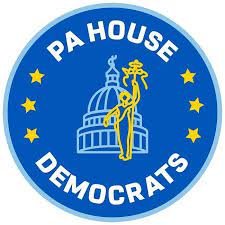Fleming, Kutz unveil leadership of bipartisan Future Caucus
March 28, 2023
State Reps. Justin Fleming, D-Dauphin, and Thomas Kutz, R-Cumberland, today announced the establishment and their chairmanship of the new bipartisan Future Caucus.

HARRISBURG, March 27 – State Reps. Justin Fleming, D-Dauphin, and Thomas Kutz, R-Cumberland, today announced the establishment and their chairmanship of the new bipartisan Future Caucus.
“Before my election to the General Assembly, I spent 12 years advocating for mental health and children where I worked with members of both parties to achieve legislative wins,” Fleming said. “We have many big challenges facing Pennsylvanians including lack of affordable housing, student loan debt and infrastructure investments and we need members of both parties to work together and find solutions. I’m excited about the opportunity to join with my colleagues to face these challenges in a bipartisan manner.”
“Pennsylvanians need forward-thinking legislators who are willing to work across the aisle and focus on results that will benefit the Commonwealth for generations to come,” Kutz said. “I’m thrilled to chair this caucus with Rep. Justin Fleming. He shares the belief that we the need to work together to find common ground in state government. The formation of the Future Caucus is a critical step toward setting differences aside to tackle the tough issues head on. I’m eager to get to work.”
The Future Caucus focuses on bringing together a bipartisan group of legislators aged 45 and younger to help foster a generational shift towards collaboration and bipartisanship. The Future Caucus is comprised of a bipartisan group of House members who share the desire to work in a bipartisan manner. Fleming and Kutz have also pledged to work pragmatically to build a culture of bipartisan cooperation and collaboration.
More information is available by contacting Fleming’s district office at 717-230-1172.






Join 1,900+ BIPARTISAN LEADERS NATIONWIDE
Be a part of a network of lawmakers committed to governing effectively, passing more representative public policy, and increasing public trust in democracy.